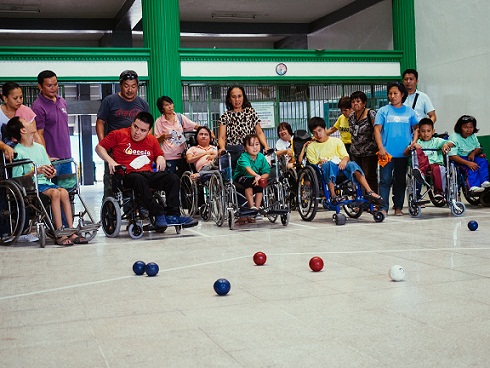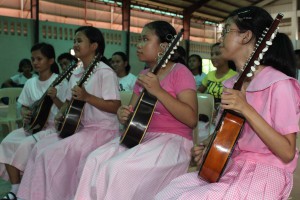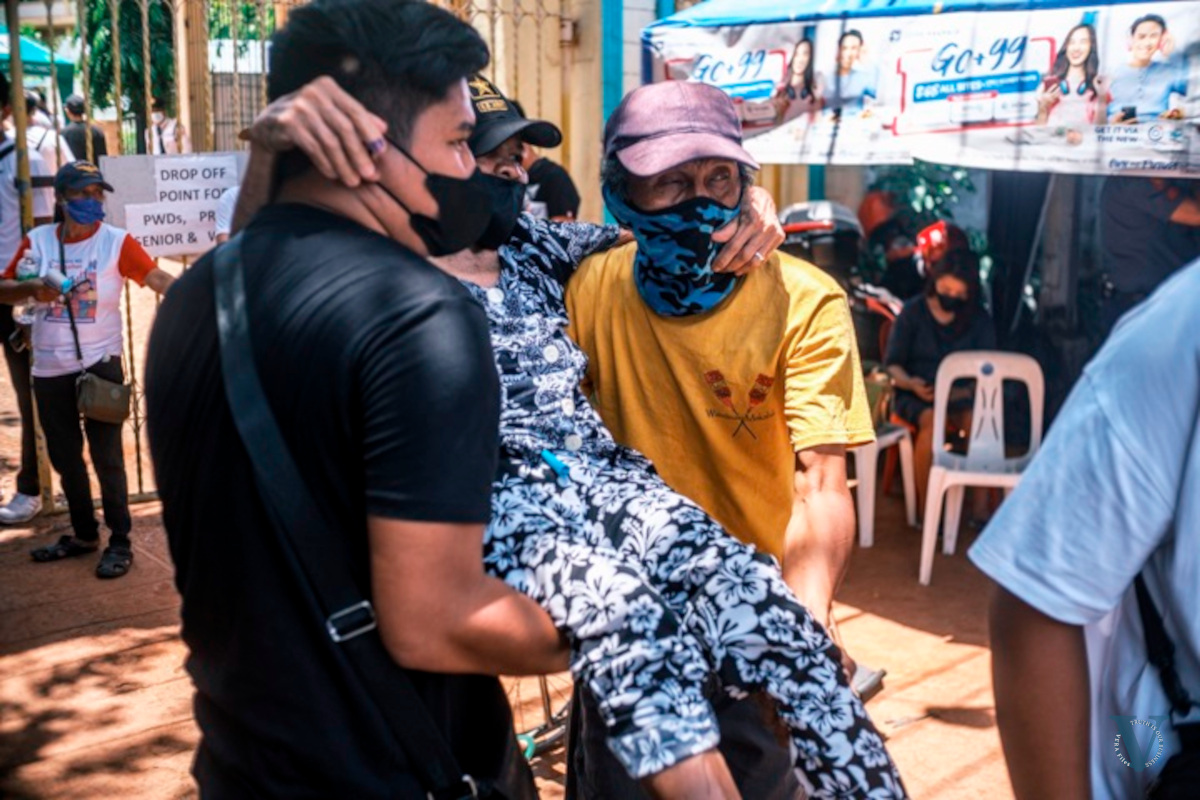By MELISSA LUZ LOPEZ
Photos by MARIO IGNACIO IV
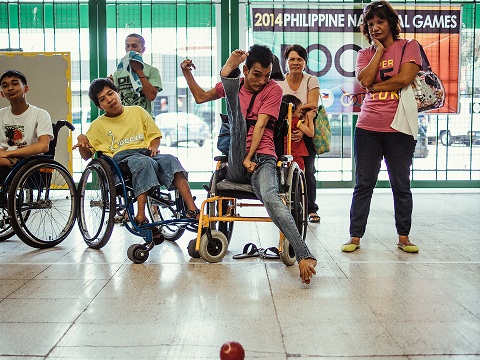 IN 2008, athlete Marilou Deniega competed in the ASEAN Paralympic Games held in Thailand. She played boccia, a ball sport designed for persons with cerebral palsy.
IN 2008, athlete Marilou Deniega competed in the ASEAN Paralympic Games held in Thailand. She played boccia, a ball sport designed for persons with cerebral palsy.
Deniega, a first timer in the Para Games, failed to bring home a medal, having trained for only a month prior to the competition. She recalls, though, that she only lost by one point.
Boccia has been in the country since the year 2000 and is part of the annual Philippine National Games. This year, the boccia tournament was held May 20 and 21 at the Marikina Sports Center.
Four teams participated in this year’s tournament, composed of persons with disabilities (PWDs) federation members from Quezon City, Las Piñas, Mandaluyong and Marikina, along with members of the Philippine Cerebral Palsy Incorporated. Singles and doubles competitions were also held.
Boccia is played by two teams with three members each, whose wheelchairs are placed in a row. The goal is to throw two balls closest to a central white ball (called the jack ball) launched on the floor at the start of the game.
The team who gets their ball closest to the jackearns the points in every round.
According to Octavio Gonzales, tournament official of the Philippine Association for the Differently Abled (PhilSPADA), the sport develops focus, control and hand-eye coordination, which in turn improves the motor skills of the players.
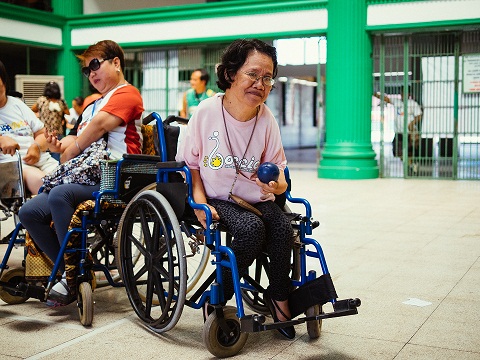 “Boccia is a thinking game, hindi lang basta hagis nang hagis,” he said.
“Boccia is a thinking game, hindi lang basta hagis nang hagis,” he said.
Charito Corazon Manglapus, president of the Cerebral Palsied Association of the Philippines (CPAP), added that the sport gives a sense of encouragement to the players and their families.
“Makikita mo na natutuwa yung mga cerebral palsied. Parang moral boosting kasi sa aming lahat ito kasi noong araw nga, hindi naman namin akalain na meron palang particular sports event for cerebral palsied (You will see those with cerebral palsy are happy. This serves as a moral boosting for us because before, we did not have a clue that there was a particular sports event for us),” she said.
Cerebral palsy often results from poor pregnancy and newborn care, which causes poor muscle control and speech impairment, among others. Often, persons with cerebral palsy are wheelchair users.
Manglapus added that holding the sport in public grounds invites other PWDs to come out and join, and makes the public more aware of the skills and needs of the sector.
Olympic sports such as basketball, swimming and chess have counterparts which can be played by PWDs. Boccia, however, is particularly challenging to persons with cerebral palsy, as it requires focus and muscle control which they often struggle with.
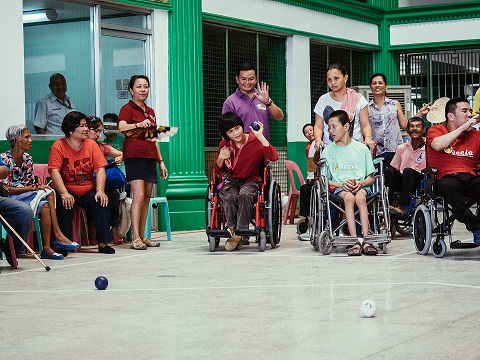 In fact, more severe conditions require an assistor to help align a player’s target. Others need to use a special ball ramp and pointer helmet to play the game, as some team members do not have a good grip of the ball.
In fact, more severe conditions require an assistor to help align a player’s target. Others need to use a special ball ramp and pointer helmet to play the game, as some team members do not have a good grip of the ball.
However, PhilSPADA is yet to acquire these materials due to lack of funds. In fact, the country only has two sets of boccia balls, which are secondhand units from Malaysia and New Zealand.
PhilSPADA serves as the national paralympic committee and receives funding through the Philippine Sports Commission.
A new set of six balls cost around P10,000, while a ramp costs at least P40,000. In the ideal setting, Gonzales said at least six ramps are needed for a two-team game.
Until then, local boccia tournaments are limited to players who can use their hands or feet to throw the ball.
The lack of equipment greatly limits the training for boccia athletes, as tournaments are often only held in the summer and during the Cerebral Palsy Awareness Week every September.
Manglapus said the lack of government support remains yet an obstacle for athletes with disabilities. She said that CPAP and other organizations are currently lobbying for support from members of the Congress to extend to PWD athletes the same benefits accorded to national athletes.
During the 2008 ASEAN Para Games, Deniega said she relied mostly on the help of PWD organizations for her training and travel expenses.
PhilSPADA’s Gonzales added that another problem is the perception of some national athlete groups that PWD athletes are their competitors in terms of government funding. This should not be the case, he said, as athletes with disabilities also bring pride to the country with paralympic medals.
“Sana iniisip namin, ang government [ay sumuporta]. Pero alam niyo, kung yun ngang national players natin na abled, hindi pa full support, paano pa para sa mga may kapansanan? (We are thinking that the government should give their support. But you know, if our national players who are abled are not given full support, what more for athletes with disabilities?),” Manglapus said.
